Soothing Separation Anxiety: Tips for Dogs and Owners
Have you ever noticed how young children seem distressed when mom or dad leave them, if even for just a few minutes? This is actually a common occurrence, referred to as separation anxiety. But what many people don’t know is that pets, especially dogs, can experience separation anxiety as well.
And when they’re stressed because their human isn’t around, it can result in some undesirable behavior—tearing the house apart, pooping in your slippers, howling and barking all day long, etc.—these are all classic signs of separation anxiety in dogs. So what do you do when your favorite pooch exhibits separation anxiety? Certainly, you can’t leave them locked in their kennel for hours and hours on end. Thankfully, we’ve got some dog separation anxiety tips to help soothe separation anxiety and help Fido feel better when you’re away.
Understanding Separation Anxiety in Dogs
Before we get into the tips on how to help a dog with separation anxiety, let’s talk a bit about just what separation anxiety is and what it is not. Separation anxiety in dogs is more than just a little whimper when you leave the house; it's a serious condition that can make your dog act out.
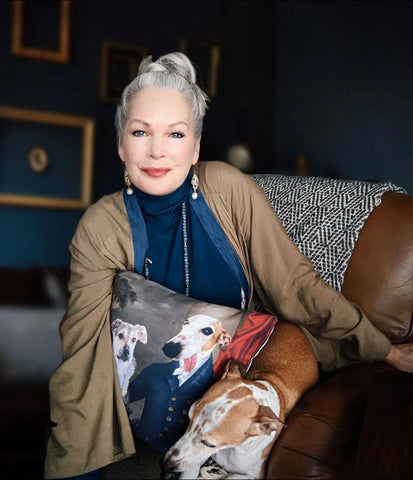
Imagine feeling so scared and alone that you couldn't control your actions. That's how dogs with separation anxiety feel when their humans are away. They're not just being naughty; they're scared and don't know how to cope with their feelings.
When discussing separation anxiety, we're talking about dogs feeling really stressed because they're away from their favorite people. It's not about them being mad at you for leaving; it's about them missing you a lot and not understanding if you'll return.
Here are some signs that might show your dog has separation anxiety:
- Trembling or salivating: Just like people get nervous, dogs do too. They might shake or drool more than usual when they're really anxious.
- Digging and scratching at doors or windows: Dogs might try to follow you by escaping. They scratch or dig at exits, hoping to get out and find you.
- Destructive chewing: They're not just chewing for fun. It's a sign they're stressed and trying to calm themselves down.
- Howling, barking, or whining: This is their way of calling for you. They hope you'll hear them and come back.
- Urination and defecation: Even if they're usually good about where they go, anxiety can cause accidents.
Causes of Separation Anxiety in Dogs
Now that we understand what separation anxiety is, let’s go a bit deeper into what causes it. After all, some dogs might show far more anxiety than others. If your dog is showing many of those signs that we mentioned above, it doesn’t necessarily mean that your dog misses you more than your neighbor’s dog, who doesn’t show signs of anxiety, misses their humans. The truth is that there are typically some reasons behind the behavior.
Here are the most common causes:
- Moving to a new home: Dogs feel more comfortable when they are familiar with their surroundings. If you have recently moved, it might take your pup some extra time to get used to their new home.
- Spending time in a shelter or foster home: While shelters do their best to create a safe and comfortable environment for the pets in their care, it’s not the same as being at home with someone who loves them.
- Being adopted into a new home: Even though you might be showering your pet with tons of love, you need to recognize that it is a change and a new environment that they’re just not used to. Just like you would need time to adopt to a new family, so does your pet.
- Changes in home routine: If you typically spend a lot of time at home and your schedule changes, taking you out of the house more often, this can be unsettling for pets. In fact, this has been an issue for many pets whose owners worked from home during the pandemic and are not returning to the office, gone for several hours at a time.
- Being sent off to a boarding kennel: By no means does this mean you should avoid taking a vacation without your pet, it is important to understand that your pet will feel stressed when they are at a boarding kennel. Don’t be surprised if your pet acts out for the first few days after you all return home.
- Abuse or neglect: If your pup was abused by their breeder, at a pet store, or by a previous owner, it will take them some time to let their guard down. Pets who have been abused or neglected require patience, and a whole lot of extra love, time, and attention.
The Bond Between Pets and Owners
We’ll be upfront—pets, especially dogs, are a lot of work. They require time, attention, and lots of walks. But, despite all the effort, ask most pet owners, and they’ll tell you that getting their dog was one of the best things they have ever done.
Consider that the Human Animal Bond Research Institute (HABRI) and Zoetis conducted a survey of pet owners and veterinarians worldwide. This research, presented at the 2022 Veterinary Meeting and Expo in Orlando, Florida, revealed that nearly all pet owners (95%) view their pets as beloved family members.
This connection is so strong that 90% of respondents reported a profound, intimate bond with their pets. Such a relationship is integral for what helps dogs with separation anxiety, offering them reassurance and a feeling of safety in their human companions' presence. Additionally, 86% of pet owners stated they would go to any lengths financially to ensure their pet receives the necessary veterinary care.
The benefits of this bond stretch far beyond emotional support; 87% of participants noticed significant mental and physical health improvements from their companionship with pets. And, it should come as no surprise that pets are known to do the following:
- Lift spirits
- Reduce loneliness
- Minimize stress in their humans
Pet owners' commitment to their animals extends to providing comprehensive care, ensuring pets receive medical attention, nutritious food, toys, and engagement activities essential for a fulfilling life. This attentive care improves pets' quality of life and has been linked to longer lifespans. Research from the University of Georgia indicated that neutered and spayed pets tend to live significantly longer and enjoy better overall health.
The survey highlights the reciprocal nature of the human-animal bond. It not only aids in what helps dogs with separation anxiety but also enriches human lives.
Practical Dog Separation Anxiety Tips
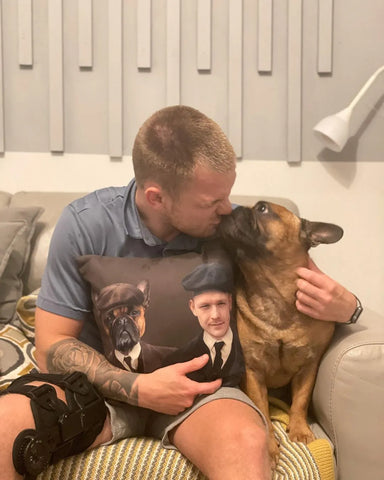
So, let’s get into what you’ve all been waiting for—curing dog separation anxiety. The American Society for the Prevention of Cruelty to Animals (ASPCA) has some tips to help your pet feel better.
- Create a safe space: Create a cozy area where your dog feels secure when you're not home. This can be a quiet corner with your dog's favorite toys and bedding.
- Practice departures: Start by leaving your dog alone for just a few minutes and gradually increasing the time. This will help your dog get used to being alone without feeling abandoned.
- Leave calming toys: Provide toys that keep your dog busy, like puzzle toys filled with treats. This distraction can help reduce their anxiety.
- Maintain a routine: Dogs thrive on predictability. A consistent schedule for walks, playtime, and meals can provide comfort and stability.
- Consider professional help: If your dog's separation anxiety seems exceptionally severe, working with a professional dog trainer or behaviorist may help. They can offer customized strategies and support.
Celebrating the Love For Your Pet
As you work through the list of dog separation anxiety tips that we provided, why not do something special to celebrate the bond that you have developed with your dog? At Crown & Paw, we’re in the business of celebrating pets and their humans. Every day, pet owners and pet lovers come to our site, looking for unique products to help them commemorate those relationships.
So, whether you want to buy something for yourself or you are looking to buy a special gift for the special pet owner in your life, we’ve got oodles of options. Consider a custom pet sweatshirt featuring a photo of your pup, perfect for keeping you warm on cold days. Or, why not dress up your living room (and your pet’s favorite couch) with some personalized pet pillows? These unique items create amazing conversation pieces when you have guests over.
Separation Anxiety in Dogs is Treatable
The great news throughout all this is that helping your dog through their anxiety is possible. By following our tips on how to help a dog with separation anxiety, you’ll be sure to see improvements in their behavior and demeanor in no time.
Our pets play such a special role in our lives. They offer unconditional love, help us be more physically active, and even help us live longer. When we help them feel better in their home environment, we give them a longer and more enjoyable life, too. It’s a win-win situation.

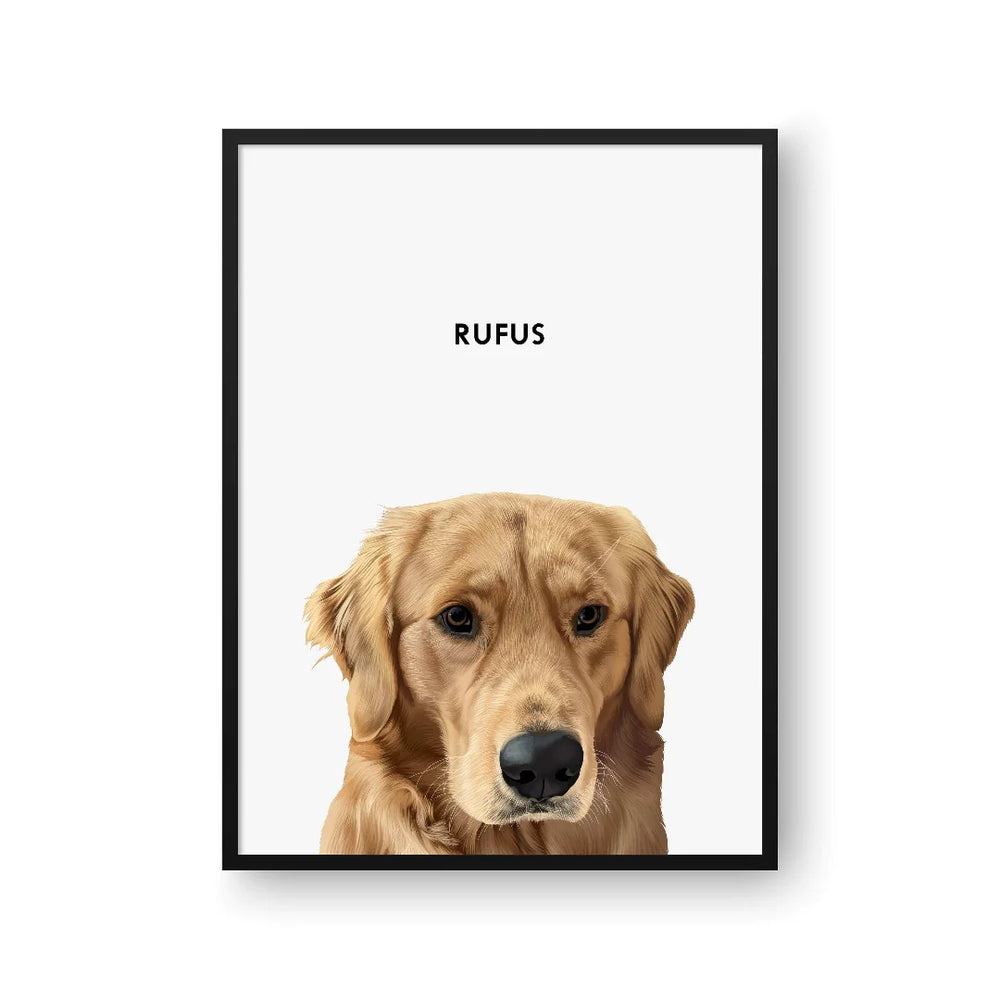
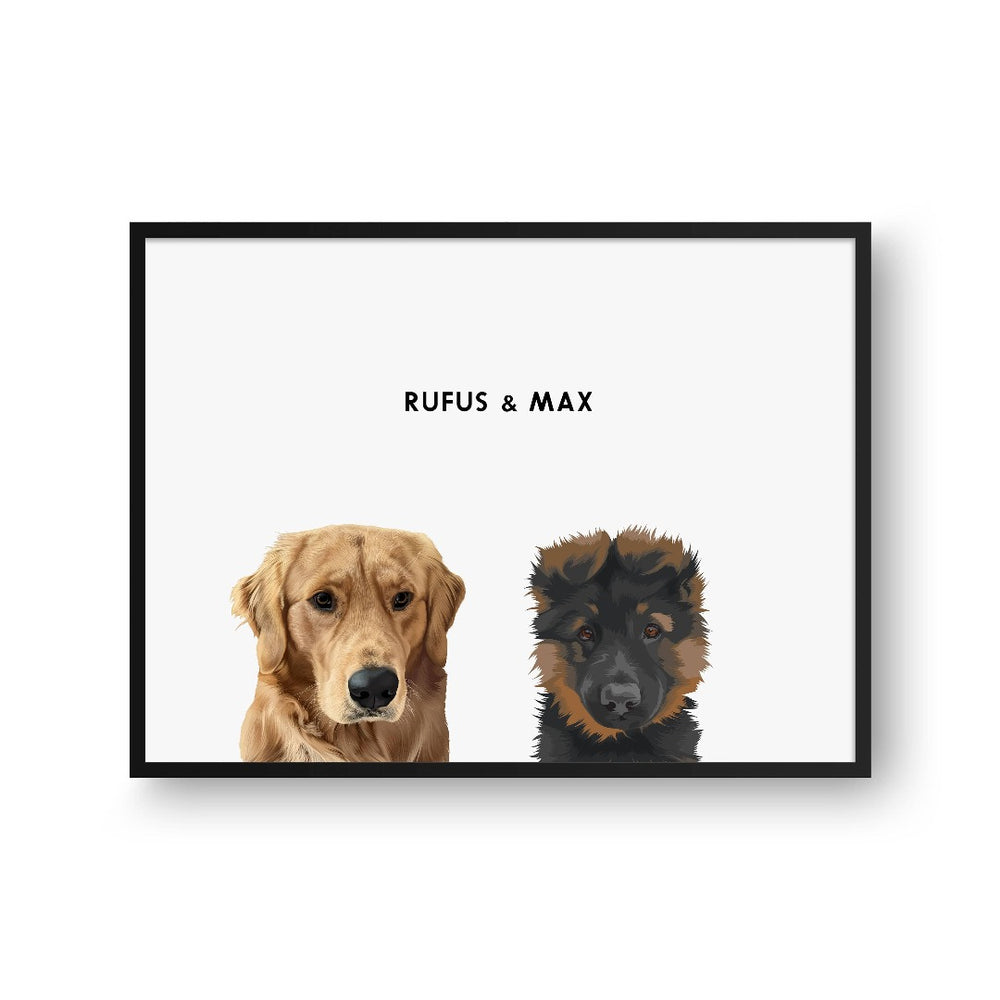
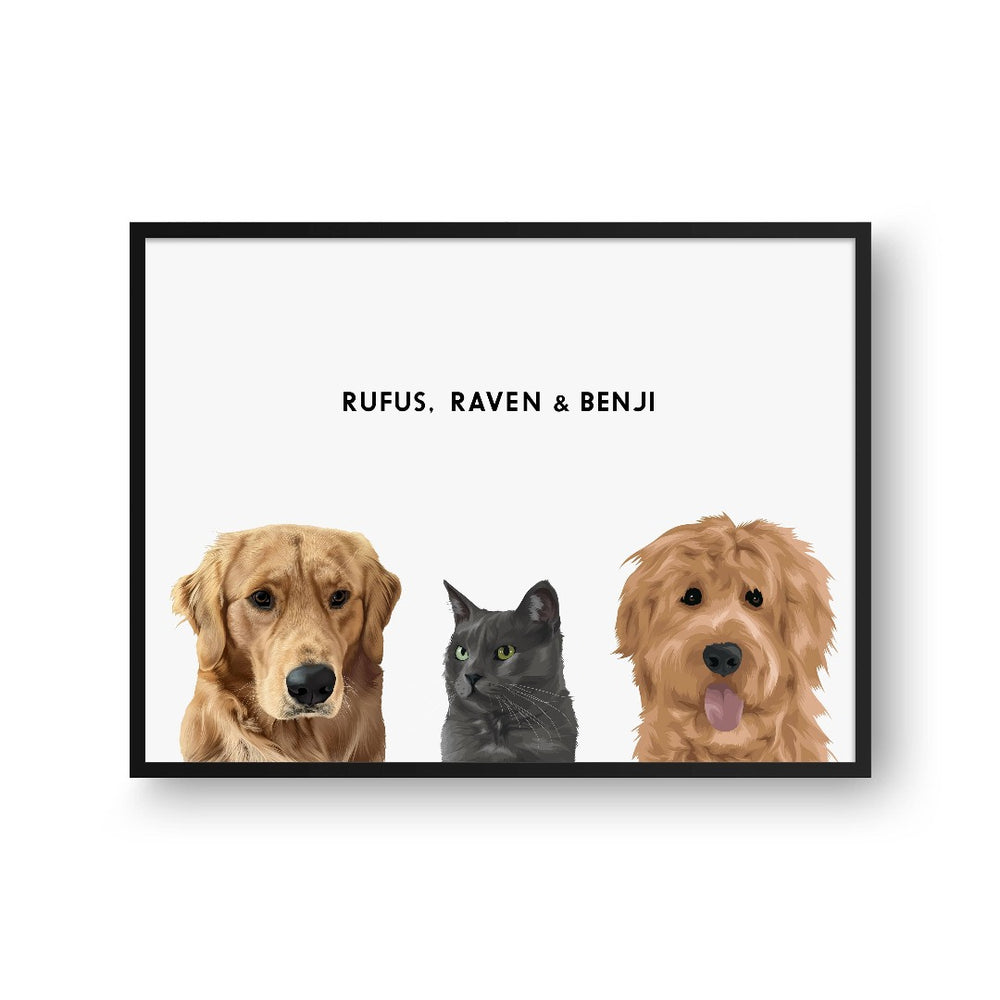
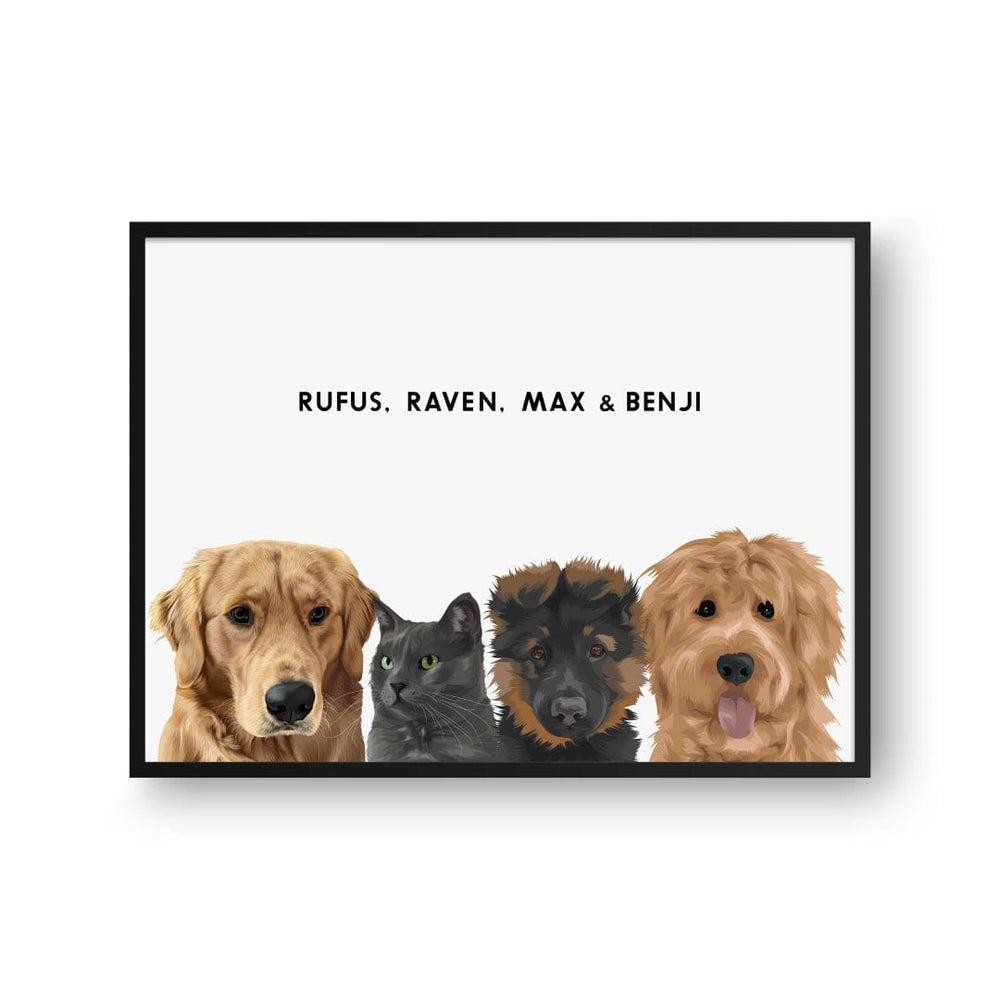
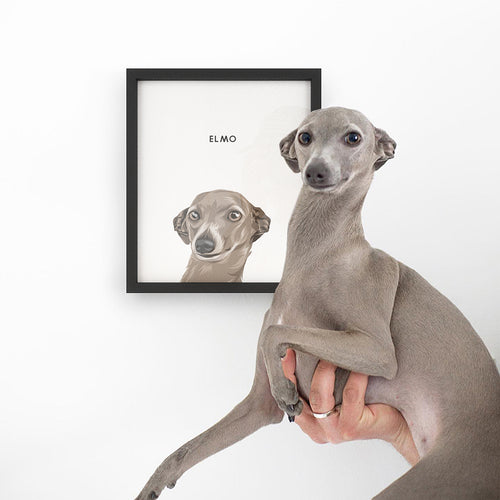
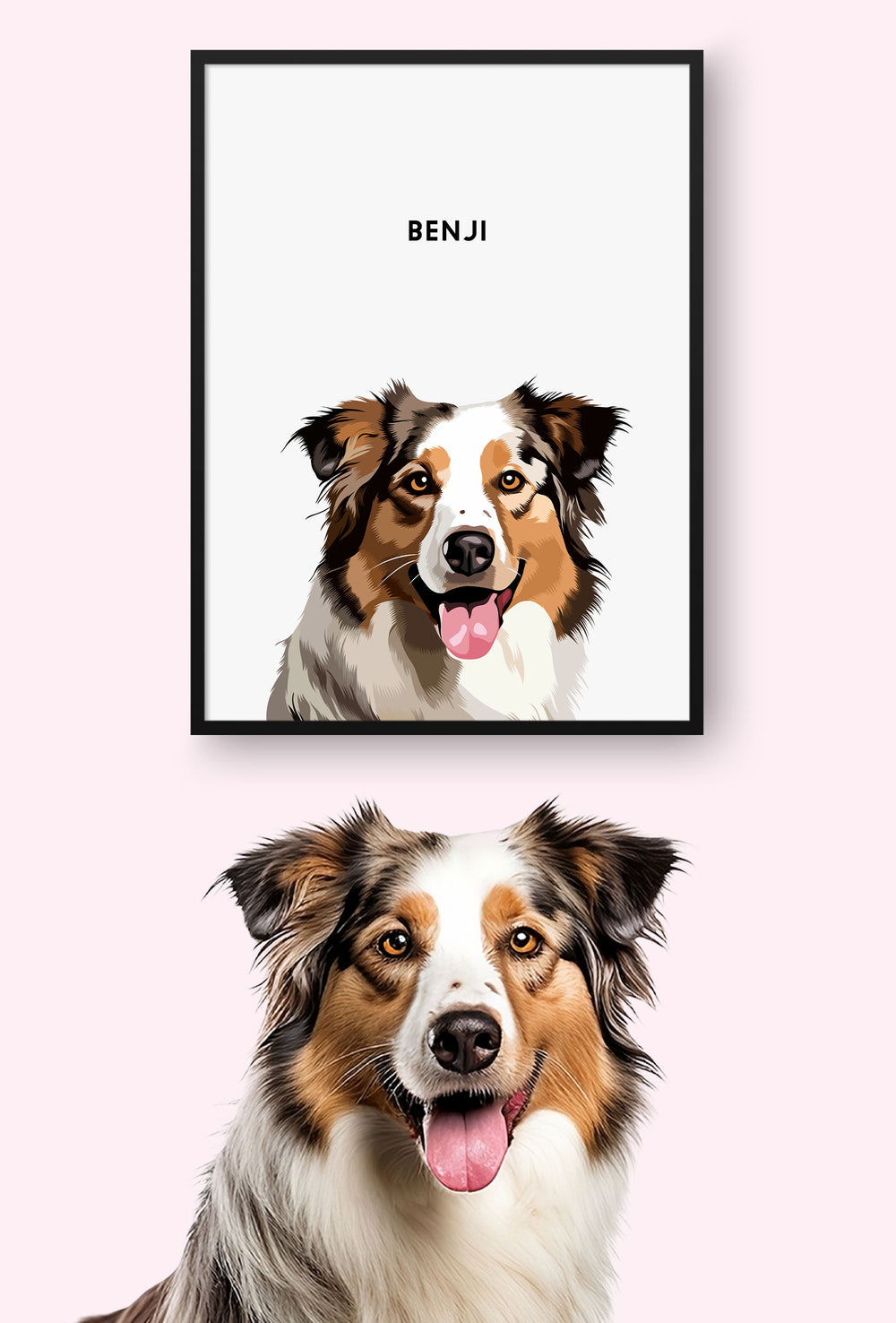
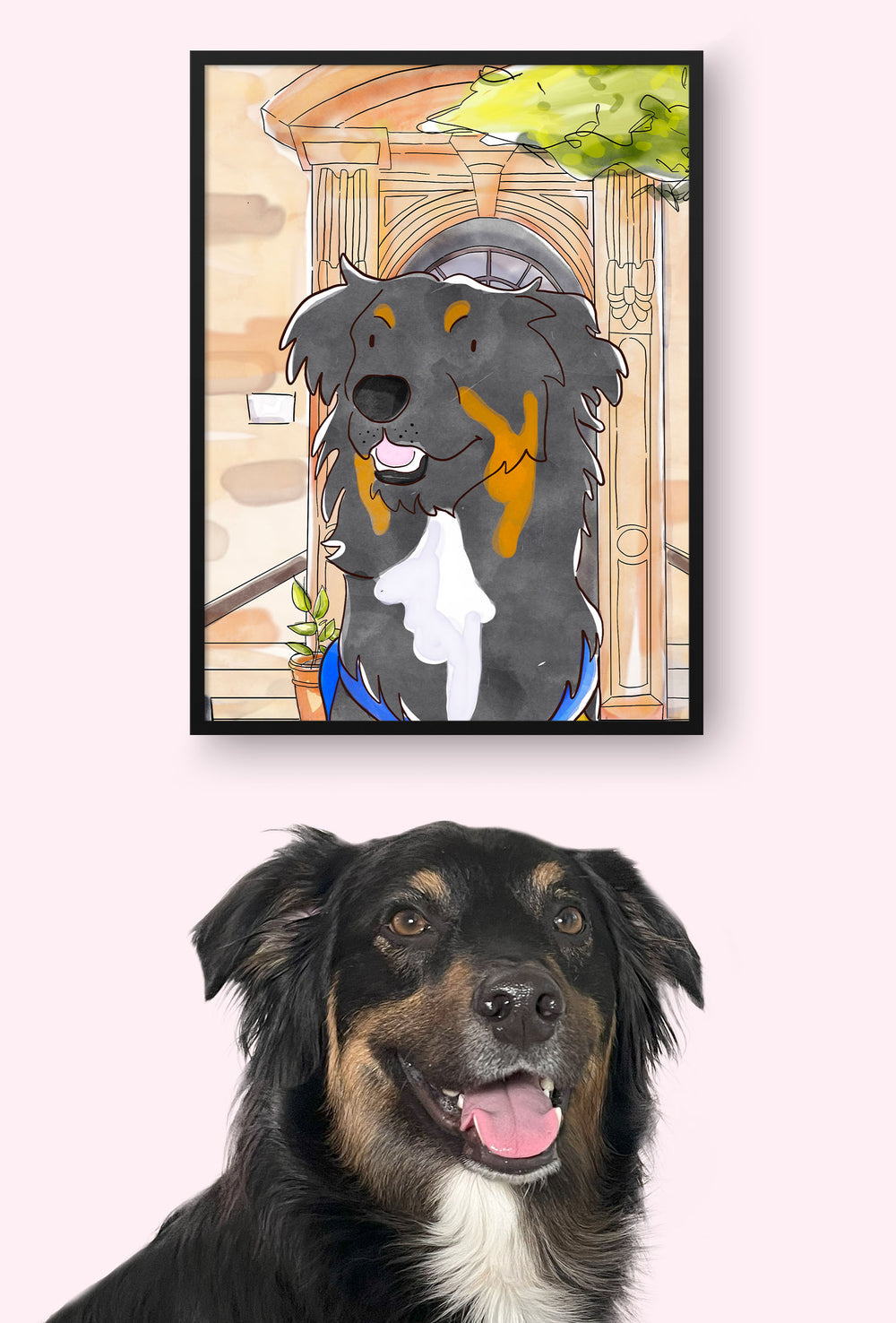
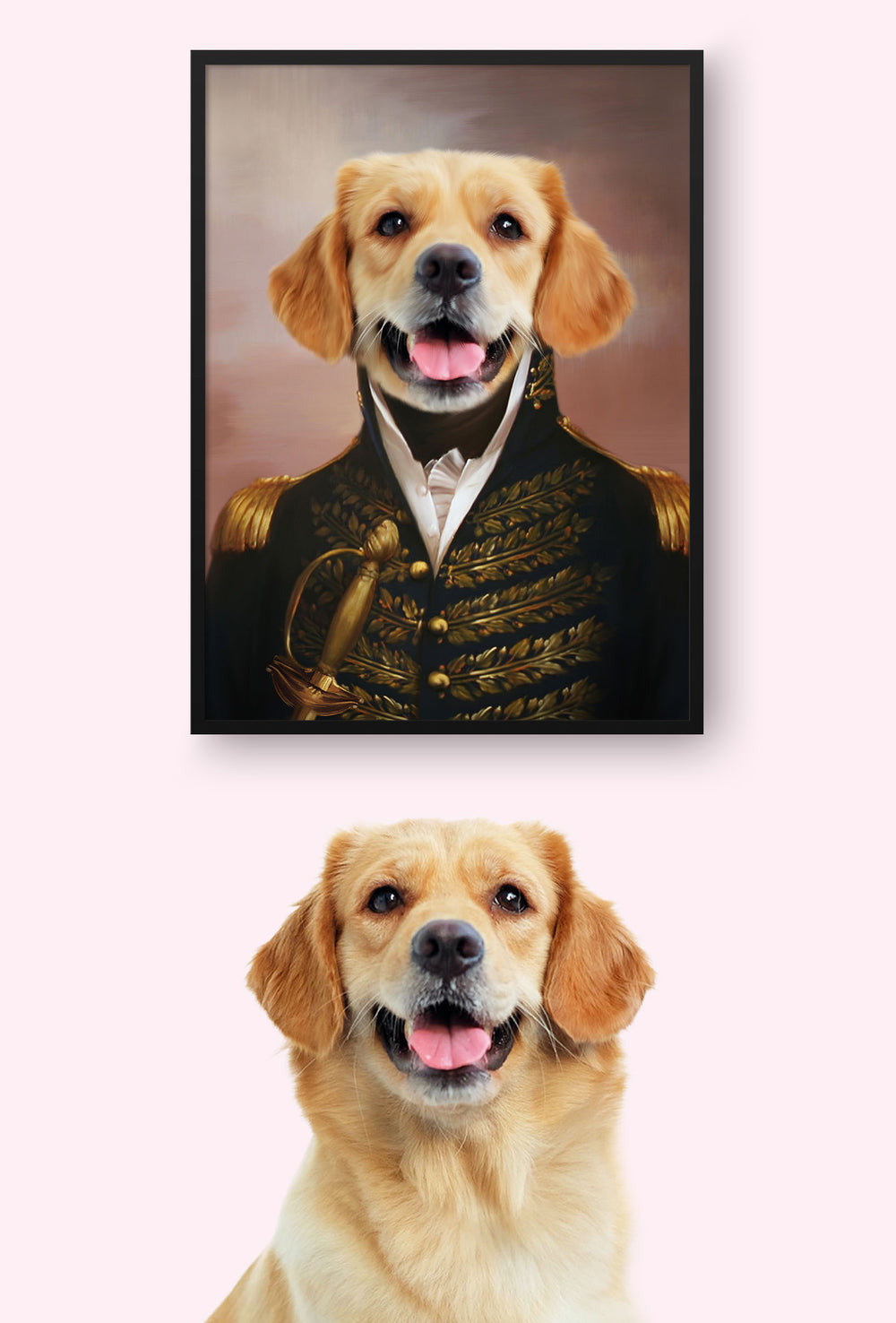
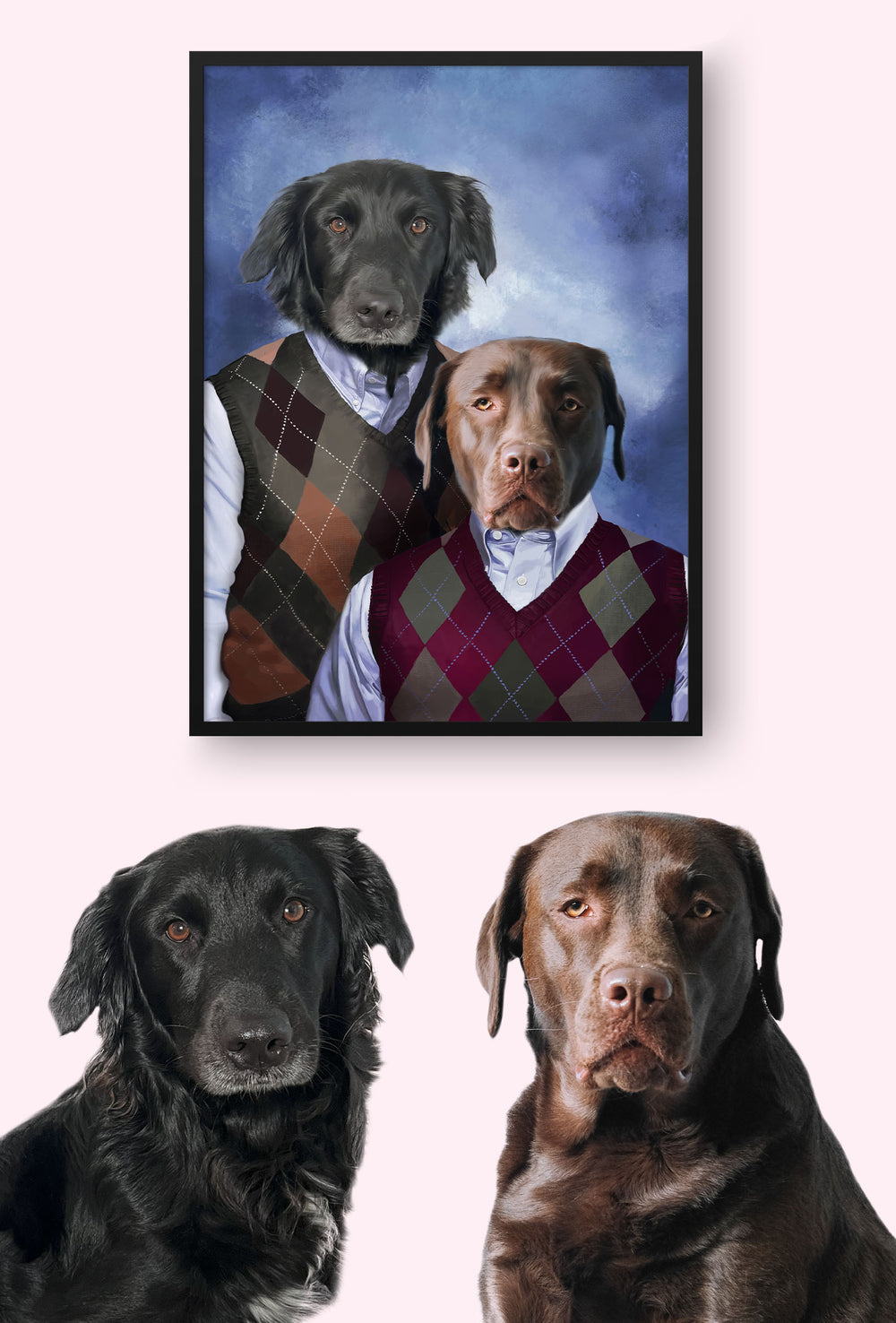
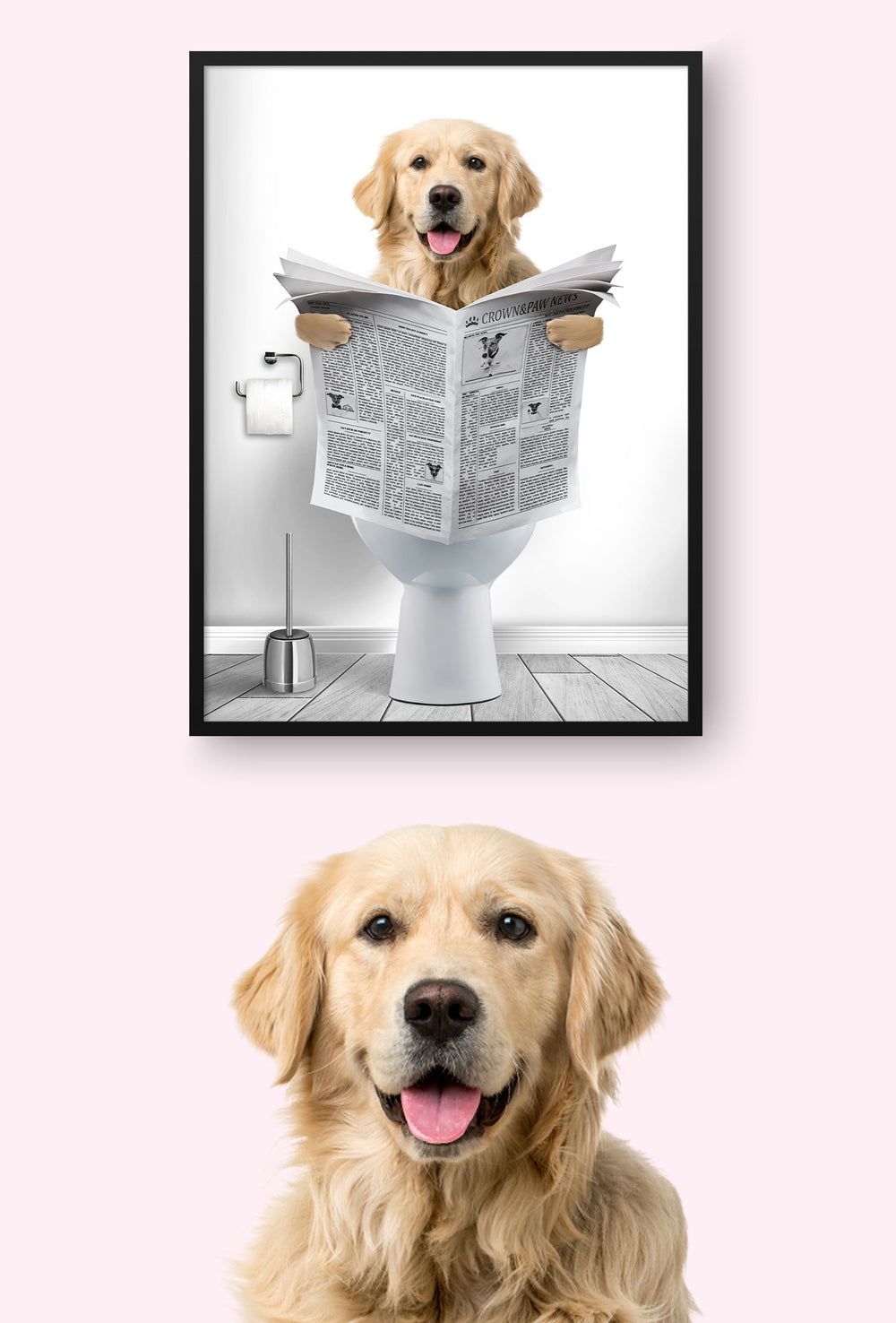
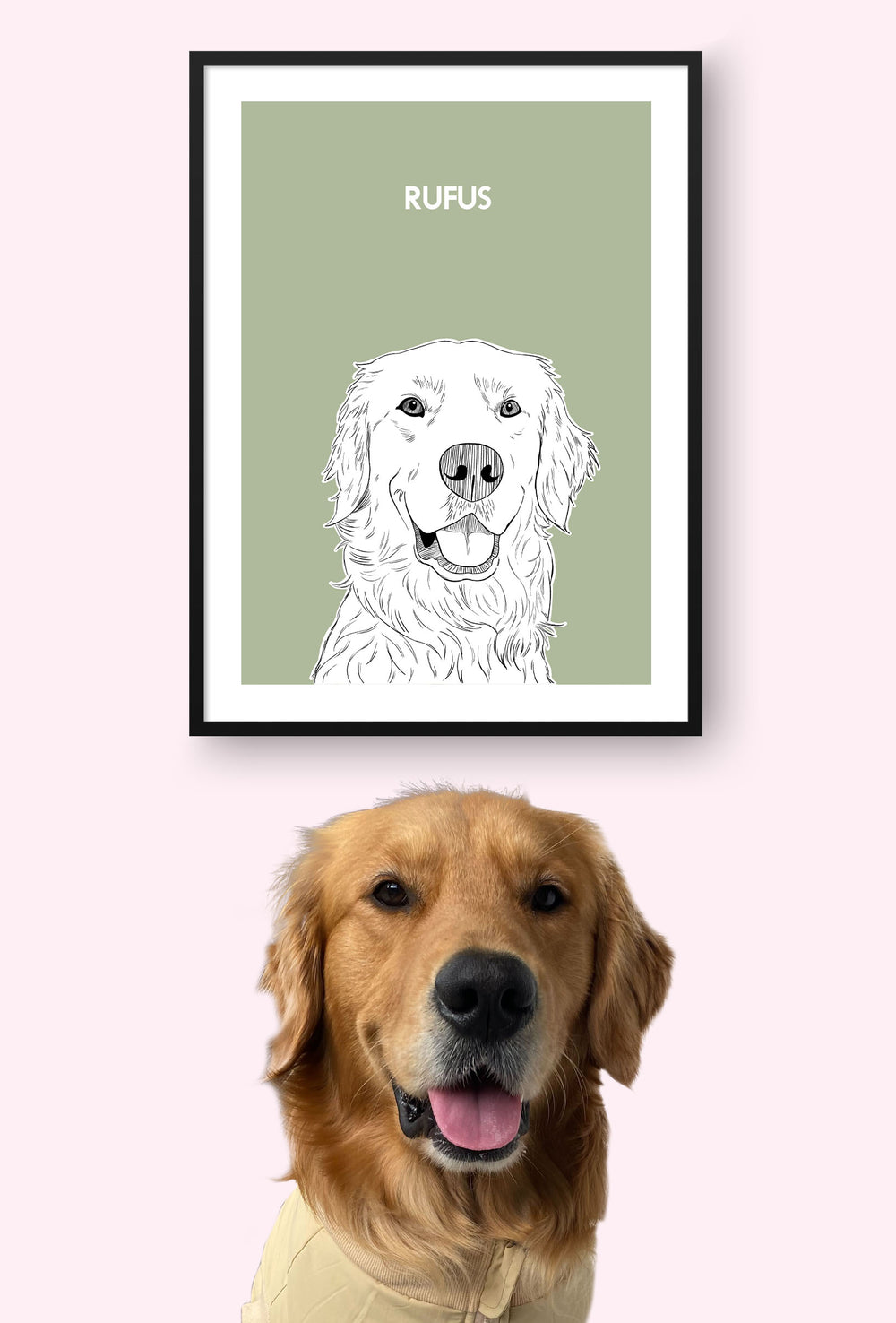
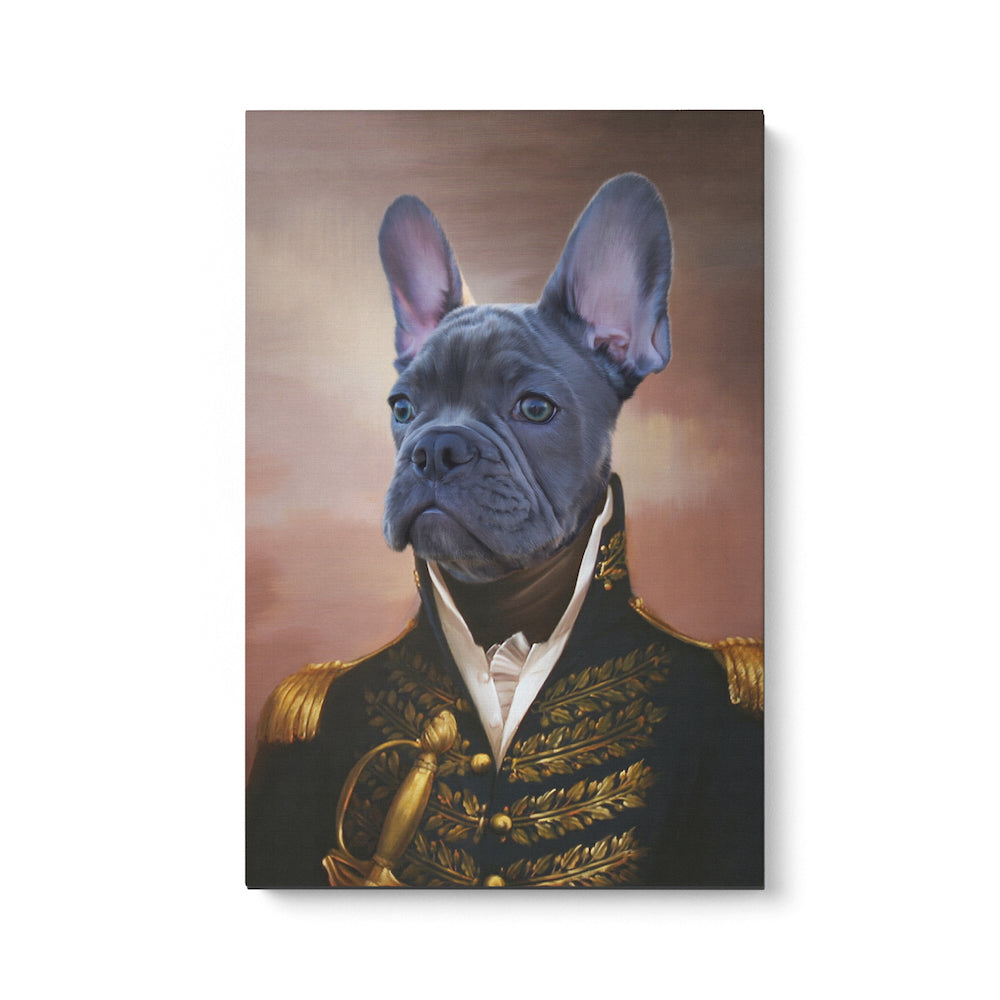
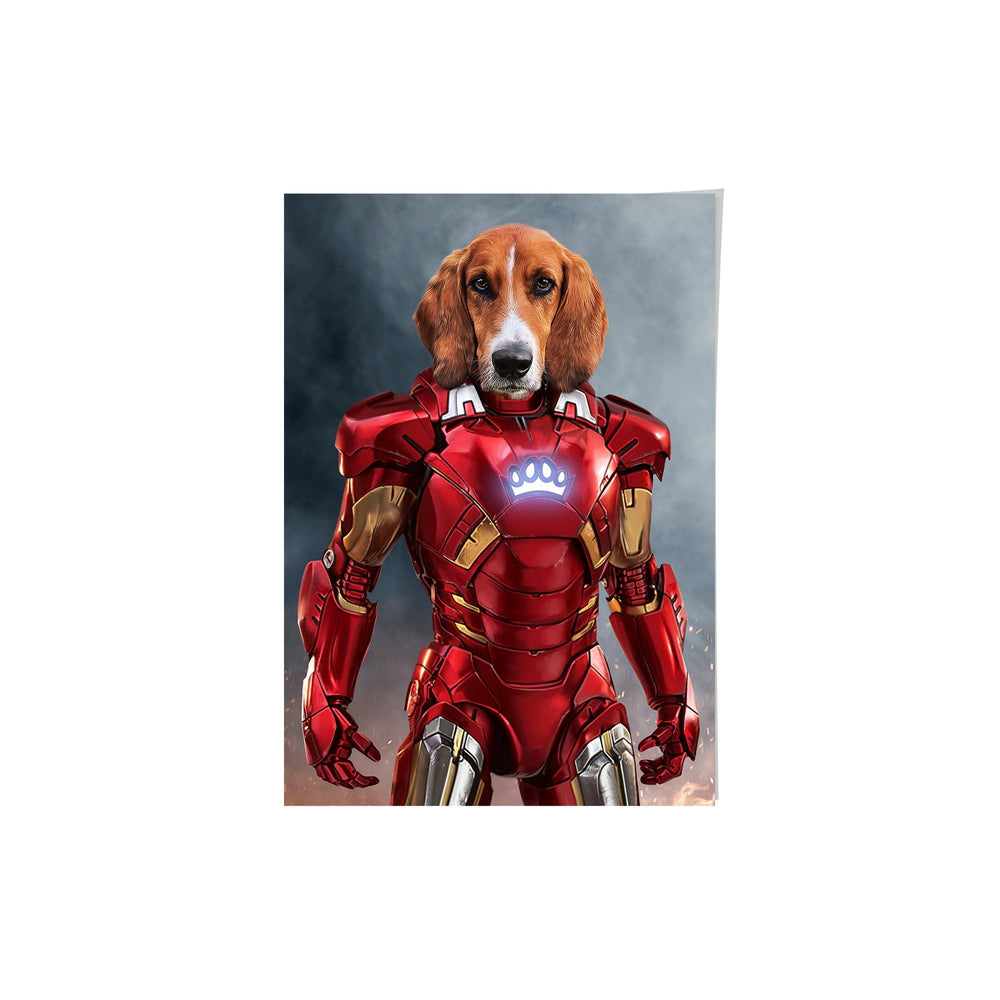
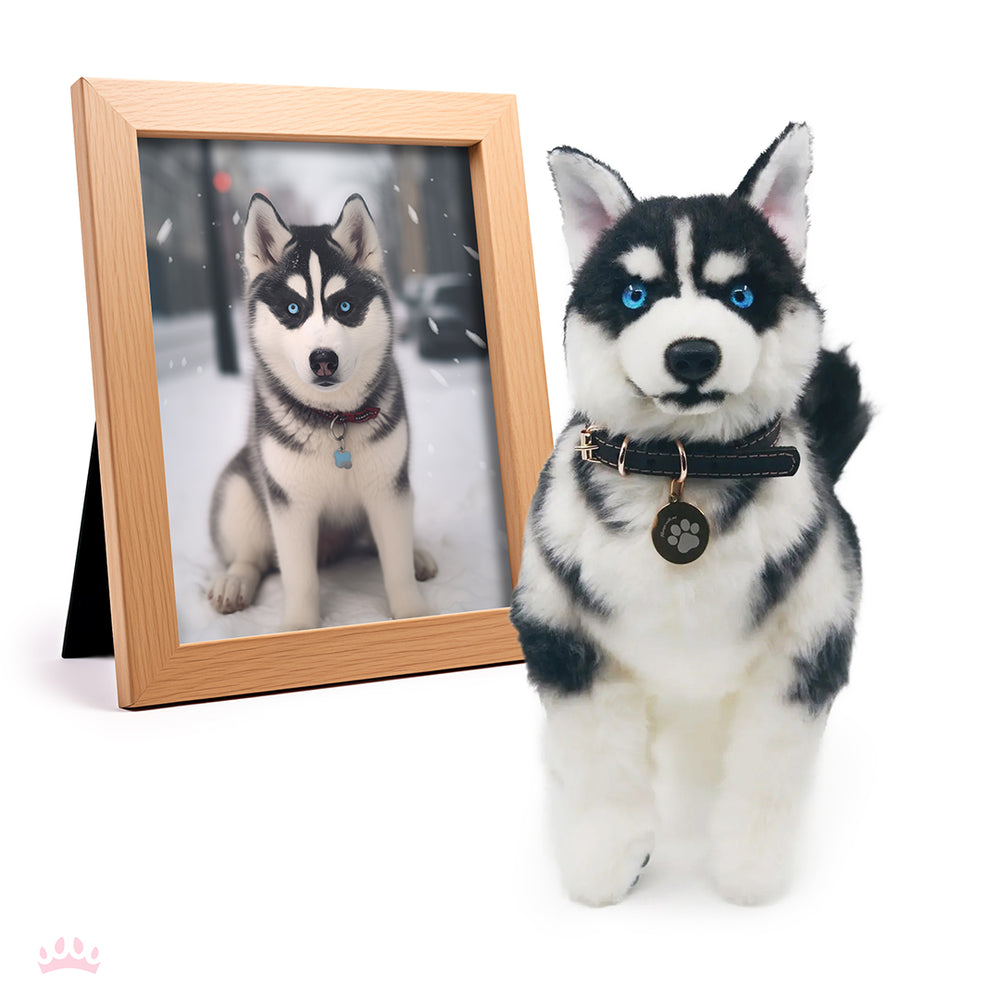
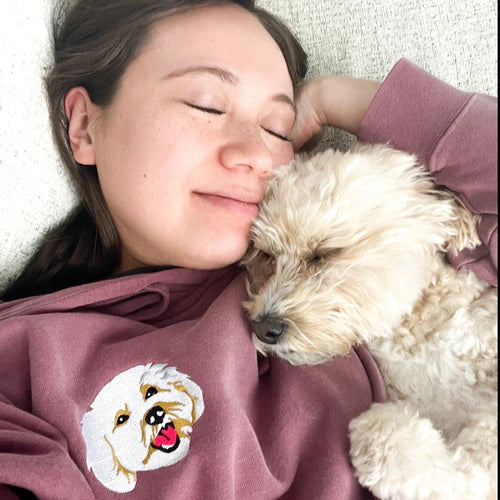
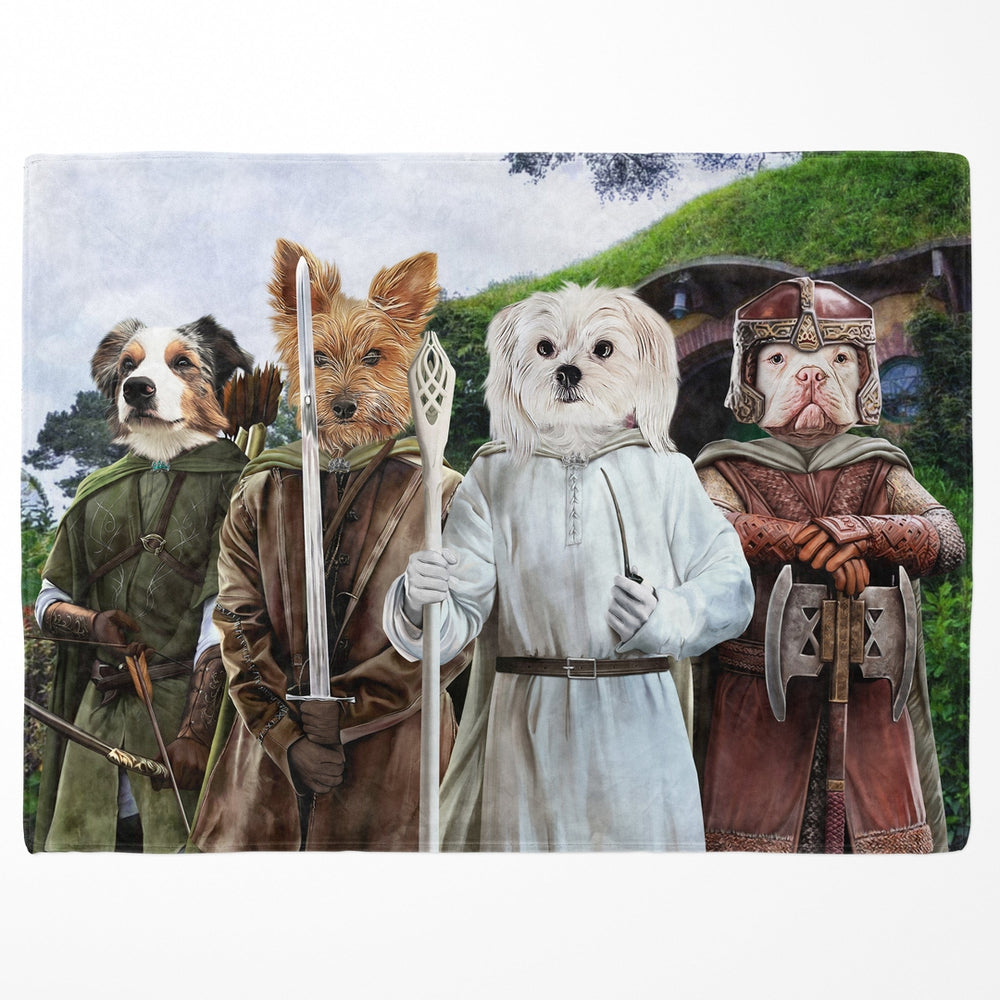

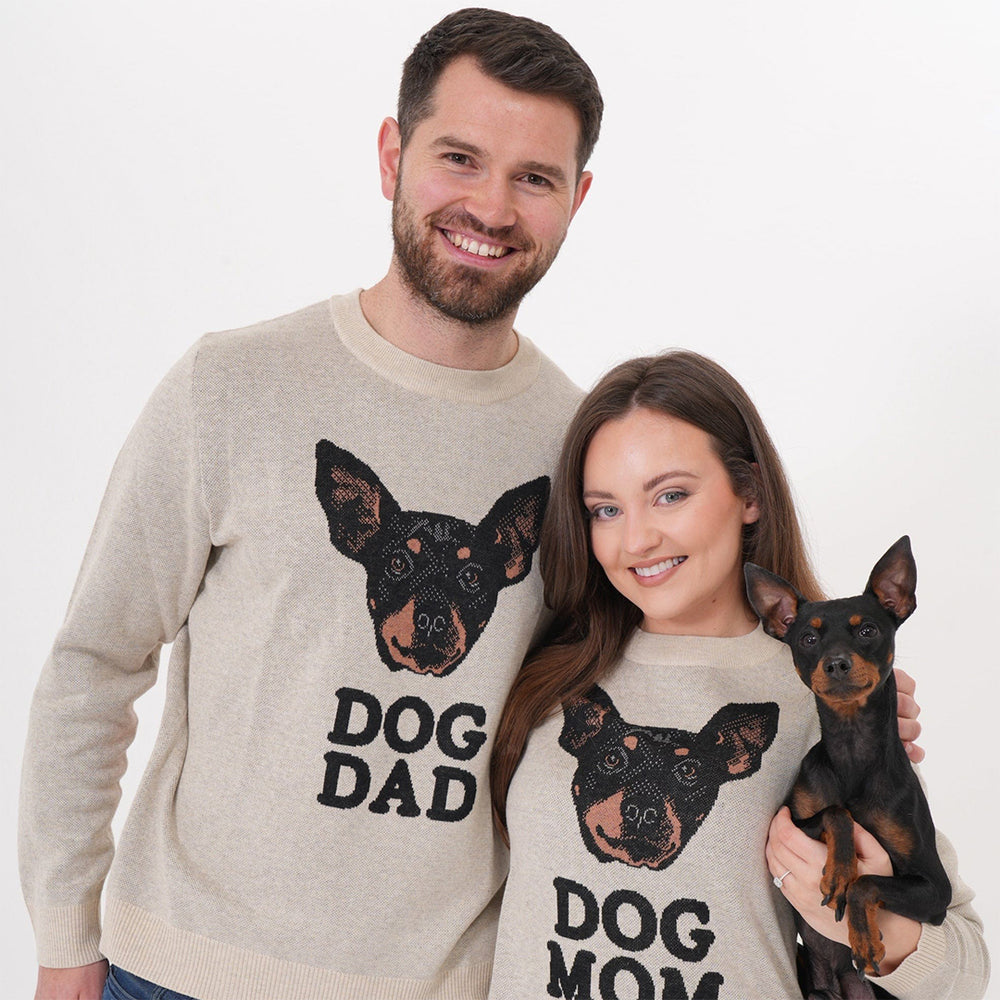

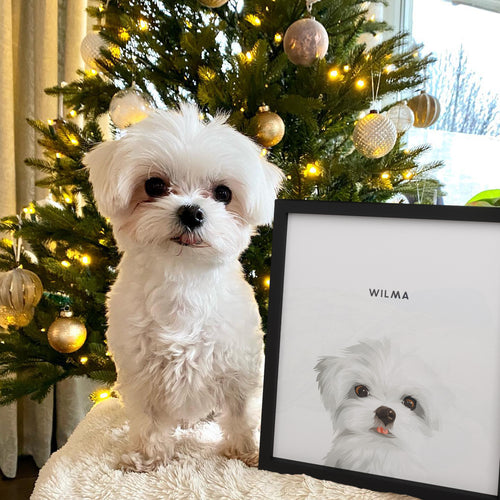




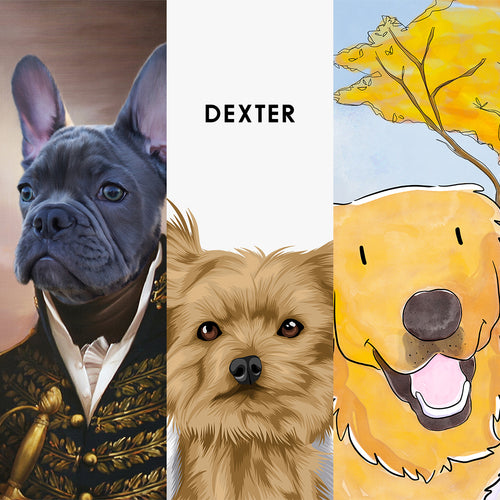

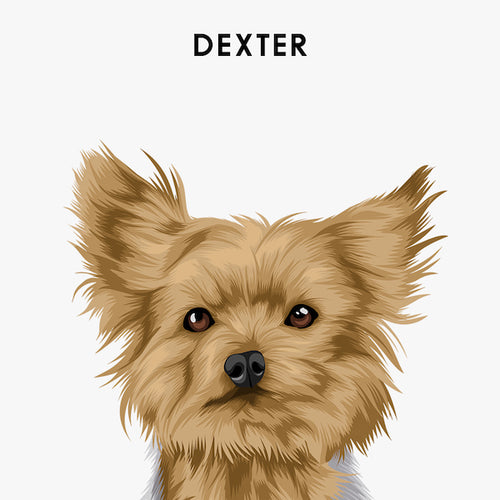
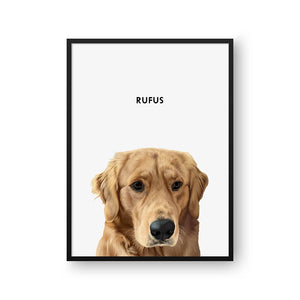 One Pet
One Pet
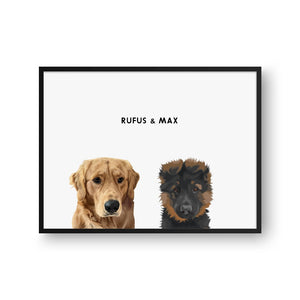 Two Pets
Two Pets
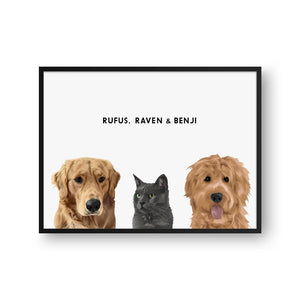 Three Pets
Three Pets
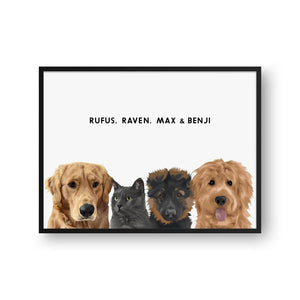 Four Pets
Four Pets
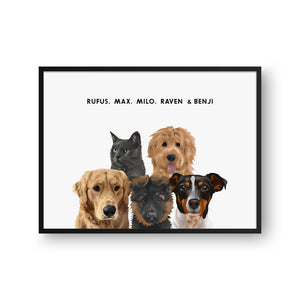 Five Pets
Five Pets
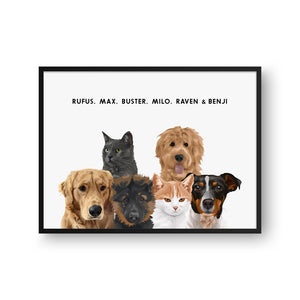 Six Pets
Six Pets

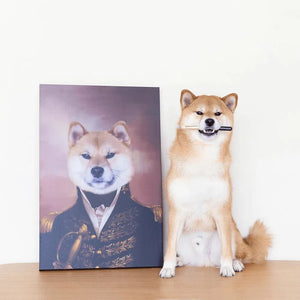 The General
The General
 The Golden Girl
The Golden Girl
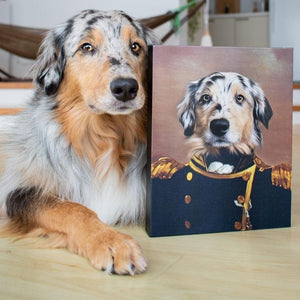 The Admiral
The Admiral
 The Princess
The Princess
 The Ambassador
The Ambassador
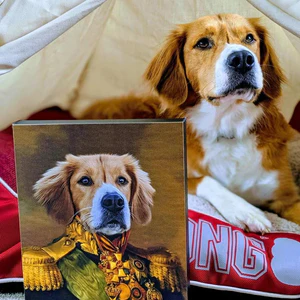 The Colonel
The Colonel
 The Queen of Roses
The Queen of Roses
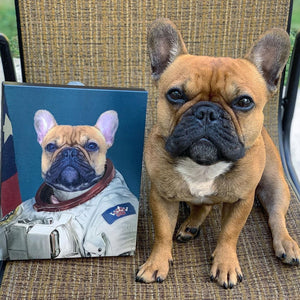 The Astronaut
The Astronaut
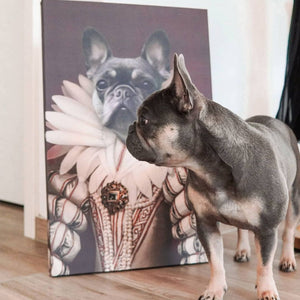 The Queen
The Queen
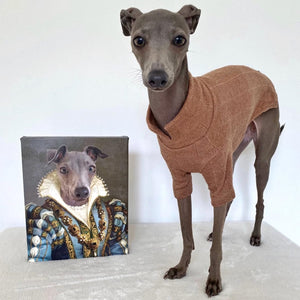 The Sapphire Queen
The Sapphire Queen
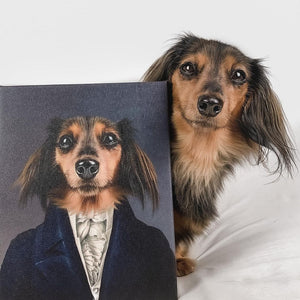 The Aristocrat
The Aristocrat
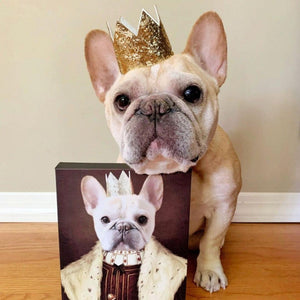 The Young King
The Young King
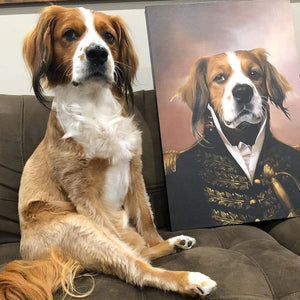 Male Pets
Male Pets
 Female Pets
Female Pets
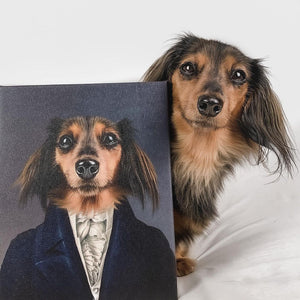 One Pet
One Pet
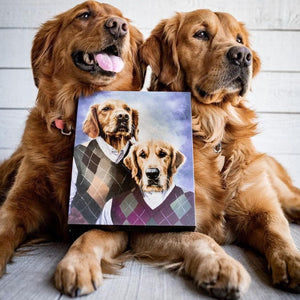 Two Pets
Two Pets
 Three Pets
Three Pets
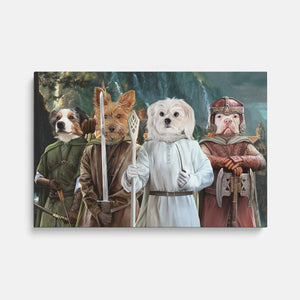 Four Pets
Four Pets
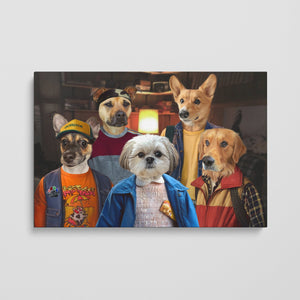 Five Pets
Five Pets
 Six Pets
Six Pets
 Kings and Queens
Kings and Queens
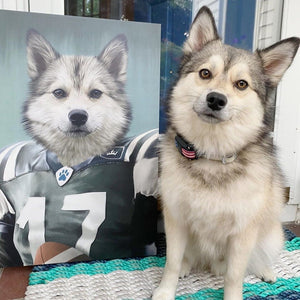 Sports and Hobbies
Sports and Hobbies
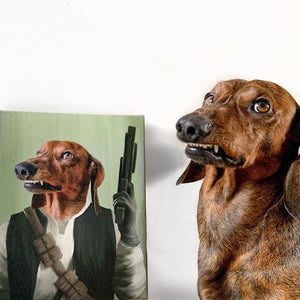 Galaxy Far Far Away
Galaxy Far Far Away
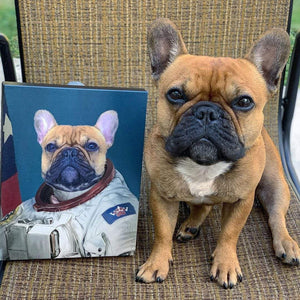 Jobs
Jobs
 Military
Military
 Other
Other
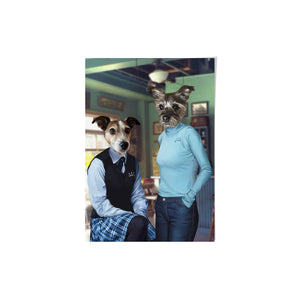 Poster
Poster
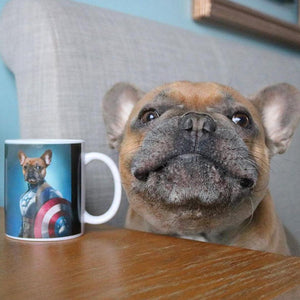 Mugs
Mugs
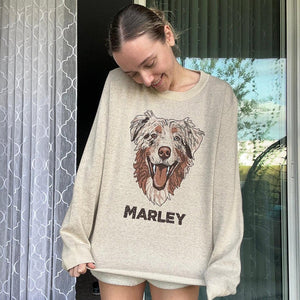 Apparel
Apparel
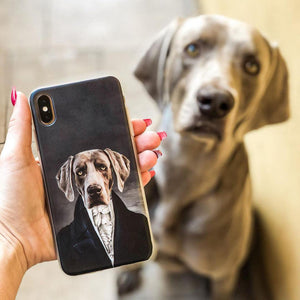 Phone Case
Phone Case
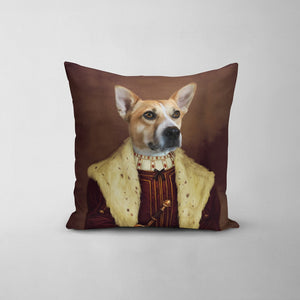 Pillows
Pillows
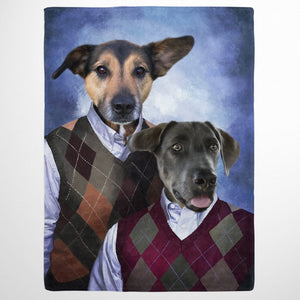 Blankets
Blankets

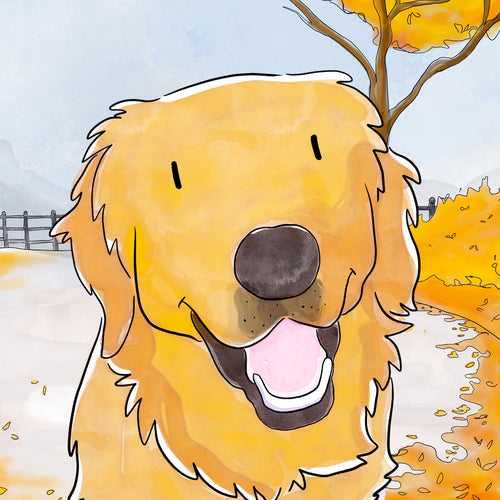
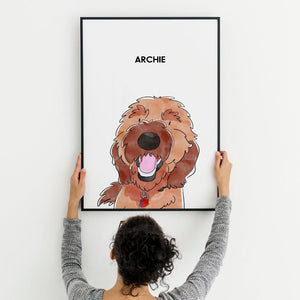 One Pet
One Pet
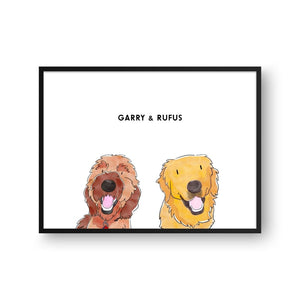 Two Pets
Two Pets
 Three Pets
Three Pets
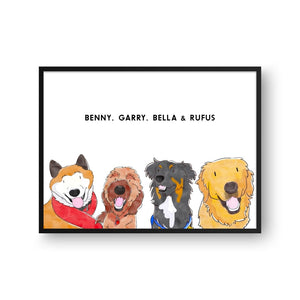 Four Pets
Four Pets
 Five Pets
Five Pets
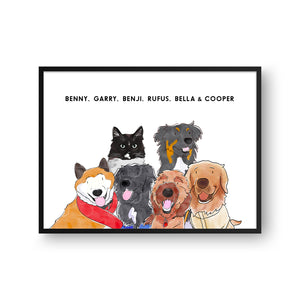 Six Pets
Six Pets
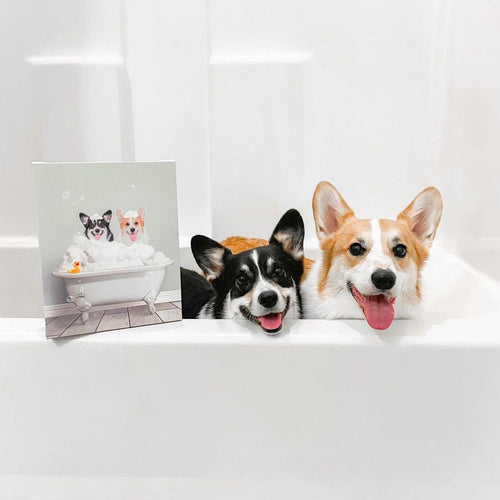
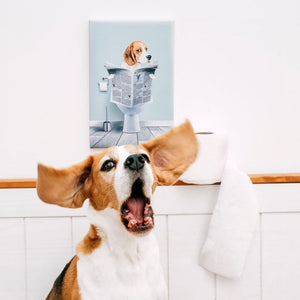 Restroom
Restroom
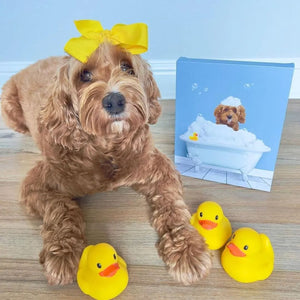 Bath (1 Pet)
Bath (1 Pet)
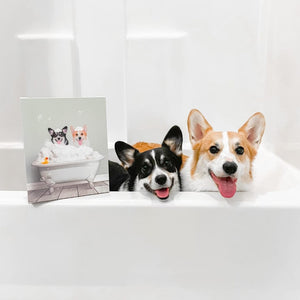 Bath (2 Pets)
Bath (2 Pets)
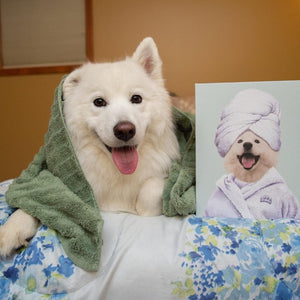 Spa Day
Spa Day
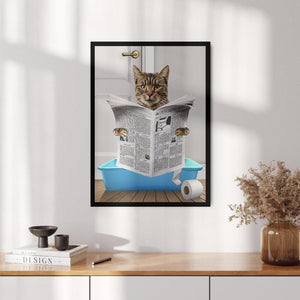 Litter Tray
Litter Tray
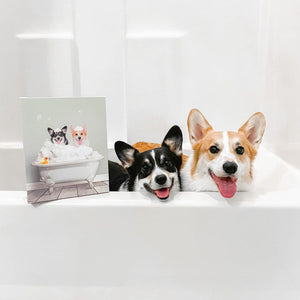 All
All
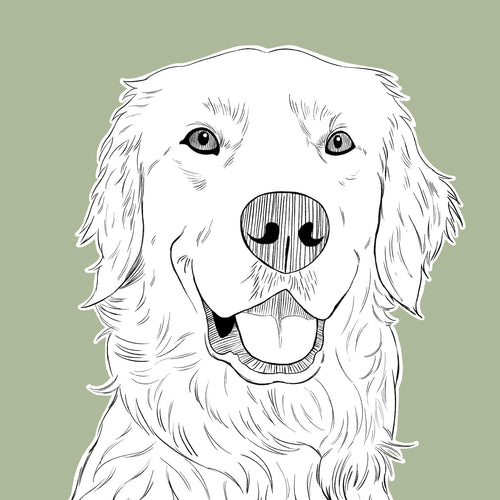
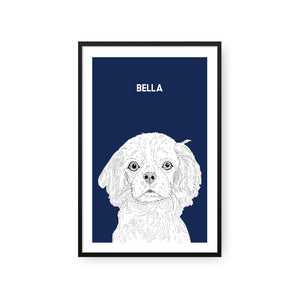 One Pet
One Pet
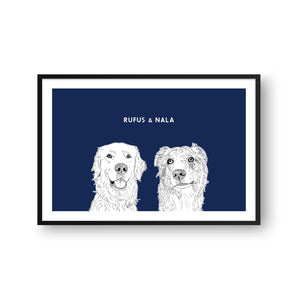 Two Pets
Two Pets
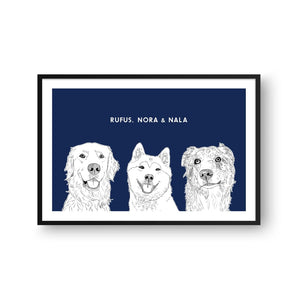 Three Pets
Three Pets
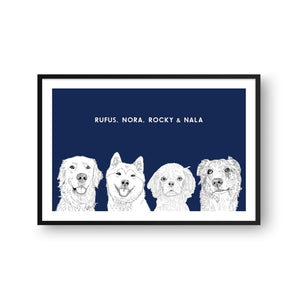 Four Pets
Four Pets
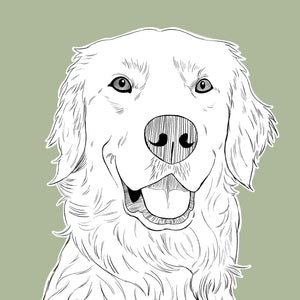 Classic Line Art
Classic Line Art
 Gold Foil
Gold Foil
 Silver Foil
Silver Foil
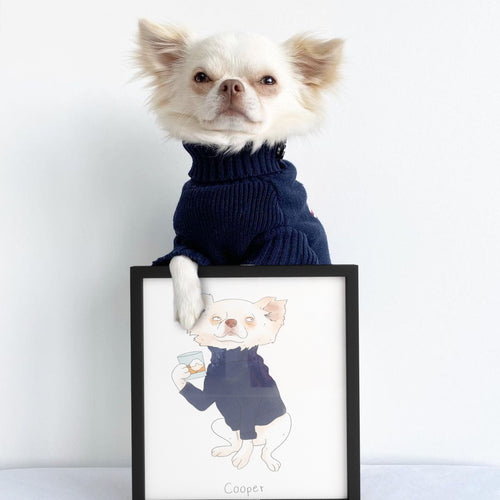
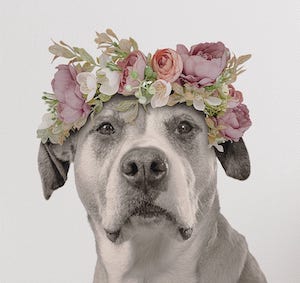
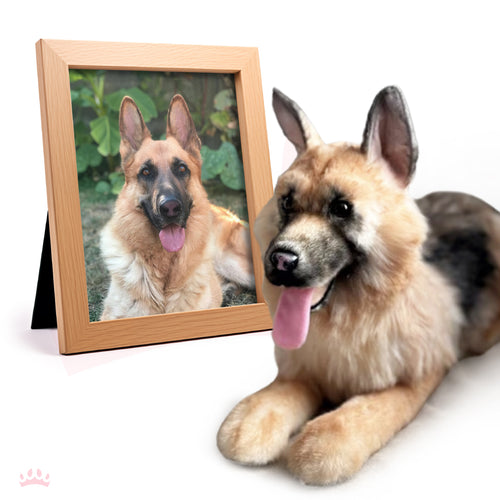





 Reviews
Reviews
 My Account
My Account
 Contact Us
Contact Us
 Help
Help
